10 Cloud Tips From NetSuite CEO Zach Nelson

Zach Nelson Speaks Out
Zach Nelson doesn't mix words. The CEO of SaaS and cloud software vendor NetSuite has sharp feelings about the market and he's not afraid to share them. Channelweb.com recently sat down with Nelson, who has helmed NetSuite for the past 8 years, to talk about the state of SaaS and cloud computing; NetSuite and its competition; and the roles partners play in all of it. Here are 10 bits of wisdom from the sometimes outspoken CEO.
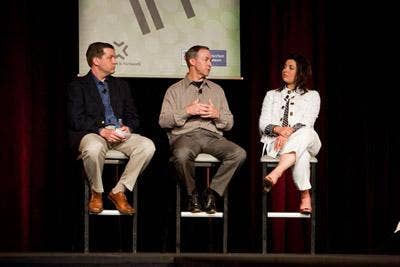
The Channel Best Be Ready
"The channel's been slow to embrace this new wave of technology but it's about to be forced to because the customer is demanding it. That was really what happened in 2009. While the market turned down what ended up happening was the customers turned to the cloud because of the cost reduction promise. And now that they've made that turn they ain't turning back because lo and behold they just didn't get cost reduction, they got massive improvements in productivity when they moved to applications like NetSuite."
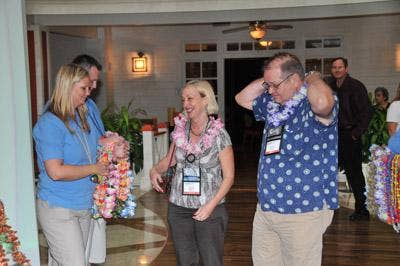
Go SaaS Or Go Home
"The channel is a big thing. There are going to be multiple aspects. There's going to be the classic midmarket VAR and some of those guys are going to make the transition to SaaS and some of them aren't. If they don't make the transition to SaaS they're going to go out of business, that's my philosophy. Unfortunately, when I say that last part people say 'NetSuite doesn't like the channel.' No, I'm just saying you ... have to transition your businesses to the Internet; if you don't you're going to go out of business. It's basically that fundamental an issue for these guys and it's coming home to roost very hard this year."
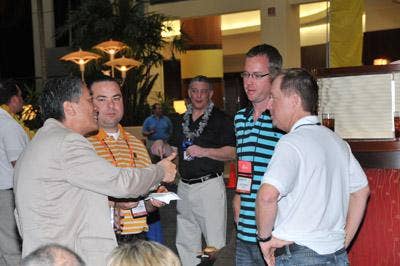
Shock And Awe
"What we tried to do early this year -- we called it internally 'shock and awe' -- what can we do to basically shock the channel to the point where they realize 'I can make money doing this?' That's really their fear is they didn't think they could make money doing this. That's where the SP 100 program came from. It's like, okay, 30 points isn't enough for you? How about 100 percent? You think you can work with 100 percent? Because we really believe in what we're doing and we believe the channel has a big role to play. In fact, the SP 100 did have that shock and awe affect if you look at it. We have 100 new opportunities now from channel partners that have come from this. We signed our first three SP 100 program partners: One is a top 20 Great Plains VAR, one is a large Epicor VAR and one is a top 15 accounting firm. It really did have the affect of breaking the log jam with the channel and the second affect I think it had was our competitors for that channel mindshare, mostly Sage and Great Plains, have been saying 'Listen, you can't make money with this. It's a monthly business. And there's very little services tail to it.' That's just patently not true. While we talk about monthly pricing, we do annual contracts with our customers. It's not a monthly revenue stream; in fact most of our partners do multi-year deals. On our direct side we don't allow are direct sales team to do that, we allow our channel to do multi-year deals with their customers."

The Stack's Days Are Numbered
"The big challenge the classic midmarket ERP channel has to make is there is one revenue stream that we've eliminated and that is the old revenue stream associated with installing the server, installing the software -- it's built into the application we've eliminated that revenue stream. The challenge is, if you're a VAR and you've built your practice around shocking the Microsoft or Great Plains server back to life every time it dies that revenue is gone. And it's going to be gone forever because it's the future of software, the cloud-based approach. So the real challenge is not in transitioning to a Software-as-a-Service model, but where is the value that you're going to add to the NetSuite solution set. And the value we believe our partners are going to add to the NetSuite solution set is understanding their customers' business, how best to apply NetSuite in a wholesale distribution environment or in a services company. That's the value they're going to have to bring where in the past the value they brought was knowing the Microsoft solution stack. Knowing the stack isn't going to be very valuable in the future for anybody."
{C}

Time To Make The SaaS/Cloud Leap
"Companies are not failing when they make the leap, they're failing when they don't make the leap. If you don't make this leap you are definitely going out of business. I don't know what's going to happen if you do it, but if you don't you're definitely going out of business. I think they see that writing on the wall."
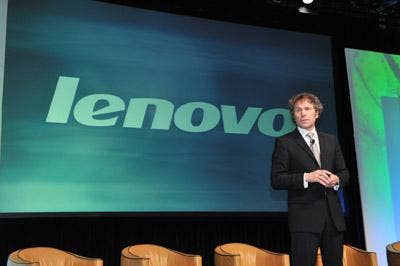
It's Not An Application Marketplace, Per Se
"I actually don't know that it's an apps marketplace. The guys who build the IP own the IP. I'm in a very different business than The Force.com. They're 'come here and find your widget to manage an account.' This is 'Come here and run your business.' It's very hard to come to a NetSuite apps market place and say 'I'm a wholesale distributor. I'm going to run my business like this.' This is where the opportunity for the VAR is. Our business strategy is all about helping a company run their business. While there may be lots of pieces that people build to extend it: a warehouse management system for complex warehousing, or payment gateways, I really do think ultimately somebody is going to bundle that and say 'Here is the solution you need to run your e-commerce shop.' That's a much bigger opportunity for the VAR than any sort of apps marketplace thing that a VAR plays in. Yeah, you can come to our Website and see all this stuff, but at the end of the day running a business is a very different thing than buying a widget to manage my Facebook communication. There's a huge opportunity for VARs to provide that business integration and that business logic, if you will, not technical logic, but business consulting power to help companies in different industries run their business built on these extensions. It's a little bit different model than Salesforce."
{C}
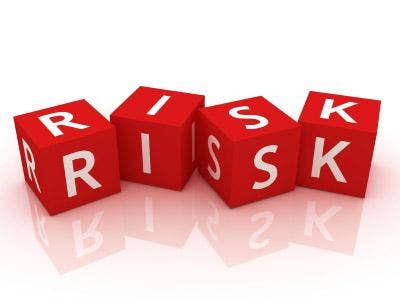
You Gotta Pull The Trigger
"[Oakland Athletics General Manager and minority owner] Billy Beane is on our board. So I said 'Billy, everyone has ready Moneyball and they know how you judge players and how you do the math. How do you still have the competitive advantage?' And he said, 'At the end of the day, you still have to pull the trigger and trade that guy.' That's sort of it. At the end of the day you have to decide to bet some bodies and some resources and your business on making this happen."
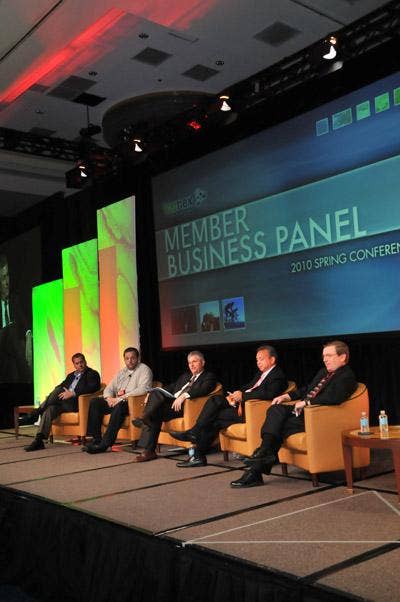
Get Vertical
"When I joined the company our average selling price was $427 dollars a year in 2002. And that was a three-year deal, so it was actually $127 dollars a year. Our average selling price the last Q4 was almost $40,000. A lot of that is a function of the functionality we've added. If you add more functionality you can sell to larger companies. ERP is always a functionality driven sale, where CRM is not so much as it basically does kind of the same thing. So that's one aspect of it. The second aspect of it is really OneWorld, this new product we introduced about 18 months ago which enables you to do multi-company consolidation in a single instance of the product. Effectively it allows you to run a multi-national company very simply in multiple currencies and all of those things. OneWorld is a huge driver. Our average sale price on OneWorld, as opposed to just NetSuite for a single instance product, is $100,000. So OneWorld has been a major driver of that. The third driver, and this is also a part of the whole business model for VARs, we have focused very heavily on verticalizing. Once you create vertical functionality you can charge more for it. Once you begin to verticalize your functionality you can suddenly charge more for that functionality. That's another piece that's playing into our average selling price is once you begin to verticalize functionality customers are willing to pay more for it."
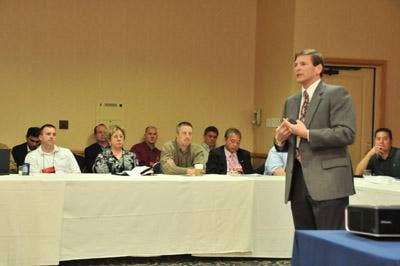
The Fortune 5 Million
"The gap we're trying to fill, the gap we really focus on from a product standpoint is that gap between QuickBooks and SAP, whatever that is. That's a pretty big gap. But the good news is nobody has more than 10 percent market share; no product does. That's why we focus on it because no mature software market looks like that. Every mature software market has some guy that has 50 percent, some guy that has 30 percent and then everybody scrambles for 20 percent. This market's not like that so that's why we focus on it. I call it the fortune 5 million instead of the Fortune 500. It's a huge opportunity and why I think the channel plays a giant role. How do you reach the fortune 5 million? I can't hire 5 million reps, I'm sorry. I have 120 reps today. That's it. I'm not going to reach the fortune 5 million with 120 reps. That's really why we've worked so hard to intermediate."

Customization Is King
"The No. 1 used feature in NetSuite? Customization. Eighty-five percent of our customers add tables to the database. That's not a minor customization, that's a major customization. The No. 2 feature? Journal entries. They're using customization more than journal entries in accounting applications. Customization is why SaaS wins. That should be another exciting opportunity for VARs because that's what it's all about -- modifying this thing to map your business. If the thing isn't customizable it's a non-starter. To me customization is the winning argument for SaaS. It's more customizable and customizations migrate. When you upgrade the software nothing vanishes."